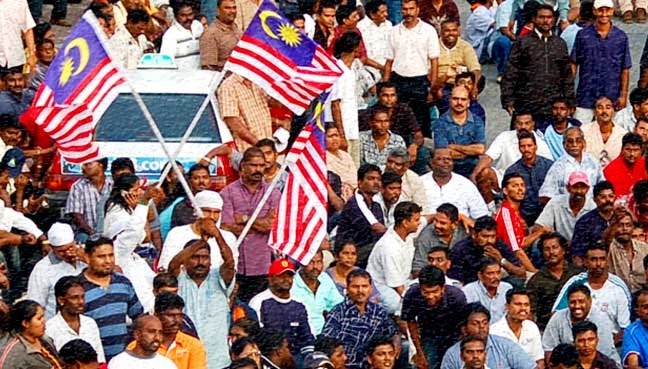
Murray Hunter
The illusion of multiracialism: What political changes in PKR and DAP mean for Indian community
P Ramasamy
May 29, 2025

The recent developments in Parti Keadilan Rakyat (PKR), particularly the internal party elections that saw Nurul Izzah Anwar triumph over Rafizi Ramli, have stirred political conversations across Malaysia. While some frame Rafizi’s defeat as a loss of reformist voice within the party, it is more appropriately seen as the triumph of nepotism and entrenched family politics.
Rafizi’s subsequent resignation as Minister of Economy, alongside another minister, signals not merely a personal or political exit but reflects deeper rot within the party’s democratic fabric.
Simultaneously, the Democratic Action Party (DAP) held its party elections, resulting in the marginalization of several loyalists of its former chairman, Lim Guan Eng. These internal changes in PKR and DAP—both key members of the Pakatan Harapan (PH) coalition—have dominated headlines, giving an impression of significant political recalibration. But a critical question remains: Do these changes have any real significance for the Indian community in Malaysia?
Historically, DAP and PKR have positioned themselves as multiracial platforms, inviting the participation of minority communities—especially Indians and Chinese—on the promise of a more inclusive political future. Many Indians, especially after the Hindraf movement, shifted their support from Barisan Nasional to these PH parties, believing that true multiracialism might be the solution to their longstanding socio-economic marginalization.
Unfortunately, these hopes have been largely unfulfilled. Over the years, DAP has increasingly been perceived as a Chinese-dominated party, while PKR has evolved into a more Malay-centric political vehicle. The community that finds itself most betrayed by this evolution is the Indian community. Despite their continued support, both DAP and PKR have sidelined Indian voices, limiting their representation to a handful of token appointments—deputy ministers, state Exco members—with little real influence.
DAP’s recent decision to appoint a non-Tamil as minister, despite overwhelming support from Tamil-speaking Indians, underscores the party’s insensitivity. Yet, the Indian Tamil community, accustomed to decades of political neglect, barely protested. Similarly, PKR leader and Prime Minister Anwar Ibrahim has failed to appoint even a single Indian Tamil as a full Cabinet minister. Such omissions are not accidents—they reflect the prevailing political logic that sees Indians as dispensable once their electoral support is secured.
The Indian community is small in number compared to the Malay and Chinese populations, but their contributions to the nation’s development—economically, socially, and politically—are immense. Yet, they continue to face systemic discrimination in civil service employment, matriculation programme access, university admissions, business licenses, and more. The much-hyped Malaysian Indian Transformation Unit (MITRA) has become symbolic of the government’s tokenism—underfunded, ineffective, and politically manipulated.
Under Anwar Ibrahim’s “Madani” government, the Indian community finds itself increasingly alienated. The performative outreach—songs, dances, and symbolic gestures—has dried up, revealing the transactional nature of PH’s engagement with Indian voters. The stark disparity in financial allocations—billions for Bumiputera empowerment and crumbs for Indian initiatives—further confirms the government’s disregard.
In this context, internal shifts in DAP and PKR—whether purges, elections, or resignations—carry no real meaning for the Indian community. The rise of Nurul Izzah or the exit of Rafizi Ramli is inconsequential to a community that continues to face neglect under a coalition that once promised hope and inclusion.
Indian support for PH has declined markedly in the last two years, and this trend is unlikely to reverse unless genuine reforms are introduced. It is now clear that continued loyalty to PH, DAP, and PKR may only deepen the Indian community’s marginalization. If a brighter future is to be envisioned, it may require a political realignment—one that does not rely on false multiracial promises but instead demands accountability, equity, and respect.
The time has come for the Indian community to re-evaluate its political loyalties. Empty rhetoric and symbolic appointments cannot substitute for genuine empowerment. The PH coalition, and the parties within it, have failed to deliver. A new political path must be considered.
This precisely the reason why Urimai was formed to be independent and forthright in championing the rights of the Indian community.
No comments:
Post a Comment